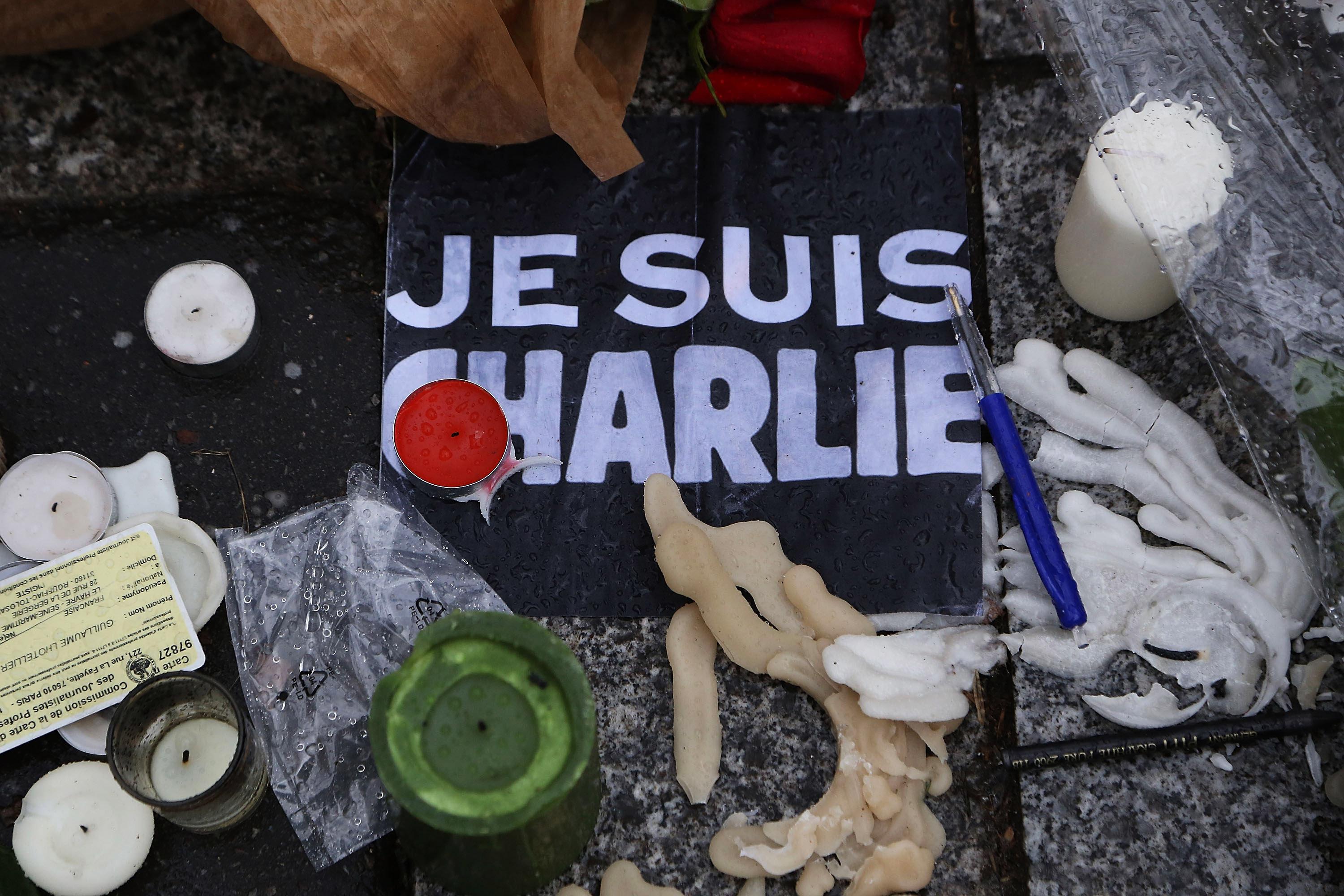As France tries to make sense of the attack on satirical magazine Charlie Hebdo that ultimately resulted in 12 deaths on Wednesday morning, the international community has rallied around the Tricolore to show support for la République and free speech.
Charlie Hebdo’s war of words with Islamist movements that ended in yesterday’s massacre started in 2006 when the magazine published cartoons of the Muslim Prophet Muhammad that had appeared in a Danish newspaper. The cartoons sparked protests across the Middle East, but the magazine refused to take them down. In 2012 the anti-religious publication took the provocations up a notch when it published nude cartoons of the Prophet.
Charlie Hebdo’s lawyer, Richard Malka, was a guest on France’s nightly news show Le Grand Journal on Wednesday night and while he lauded “a large majority of the French” for their support, he pointed out that French politicians and elites had not always had the publication’s back.
“The French society has always been behind us,” Malka said. “But certain newspapers, members of the elite, intellectuals, and sociologists have sometimes kept their distance and we have suffered from this lack of solidarity.”
Asked specifically about the political establishment’s support of the magazine in 2006 when it faced a lawsuit from the French Council for the Muslim Faith, Malka pointed out that the French president at the time was not among their advocates.
“We won their support, we fought tooth and nail,” Malka said. “Remember Jacques Chirac [told us], ‘let’s not add fuel to the fire.’ ”
For his part, the current President, François Hollande, who is facing an uphill battle in his bid for re-election in 2017 following a love scandal and his failure to revive the flailing French economy, can take pride in having expressed support for the magazine in 2007 by confronting the Muslim associations that brought the lawsuit.
“I don’t think that this case will further your cause,” Hollande told Charlie Hebdo’s foes at the time.
Previous Élysée Palace tenant and current president of the opposition UMP party, Nicolas Sarkozy, also expressed support for Charlie Hebdo during the 2006 crisis, when he was running for president. In a letter read aloud by his lawyer during the hearing, Sarkozy said that he defended the right to “smile at everything” and that he preferred “the excess of caricatures to the absence of caricature.”
Other prominent French leaders however, have not always been as enthusiastic about the magazine’s insistence on mocking the Muslim Prophet.
When the left-wing weekly published nude cartoons of the Prophet in 2012, Rachida Dati, the former Minister of Justice under Sarkozy and a current member of the European Parliament, decried what she considered to be a poorly timed “marketing ploy.”
“I did not find this particularly funny,” Dati said at the time. “Was it a good idea to publish this when everyone is a little bit on the edge? No!”
One of the leaders of the 1968 student protests in Paris and current co-president of the European Greens in the European Parliament, Daniel Cohn-Bendit, joined Dati in criticizing Charlie Hebdo in 2012. With his trademark vitriolic style, the German-born politician called the magazine’s editors “jerks” and “masochists,” suggesting that “they enjoy incurring pain.”
In an interview published in Le Monde in September 2012, Jean-François Copé, then General Secretary of the UMP and today a deputy of the French Parliament, defended then–Prime Minister Jean-Marc Ayrault who had called for “responsible behavior” after the publication of the cartoons.
“The freedom of expression is an essential freedom, but there is a context of extreme tension,” Copé said. “We have to avoid anything that can be seen as a provocation and that can lead to violence against French interests.”
Admitting that he “regretted” the decision by Charlie Hebdo to publish the cartoons, Copé added that, “the leaders of different communities—be they religious, philosophical, political or secular—have to call for reason, appeasement, and respect.”
Kristine Bergstrom wrote on the publication of the satirical Muhammad cartoons in Danish newspapers for French newsmagazine Courrier International in 2006.
